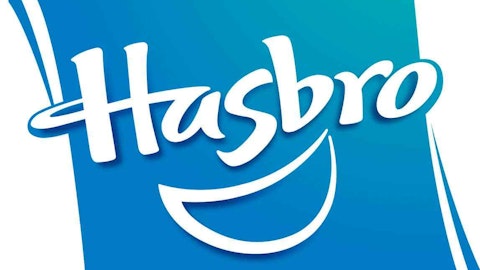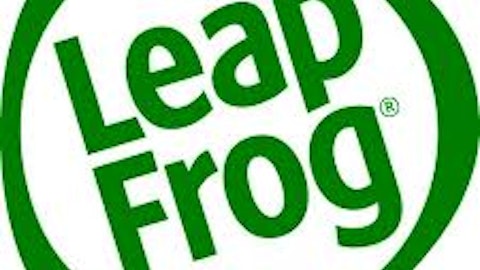Mattel’s international segment grew sales at a 4% rate last year, double its performance from North America.A similar trend occurred this year, as Mattel has posted 4% growth in international markets over the first half of 2013.
Hasbro is guiding investors toward an optimistic outlook, but I’m not sure it should be believed. At its recent investor day, the company provided its future expectations, which call for double-digit growth in emerging markets.However, the company’s recent performance in that arena should leave investors skeptical.
Hasbro’s sales in its international segment actually declined by 4% last year, including a surprising decline in its Asia Pacific segment. In fact, Hasbro’s international growth has under-performed for several quarters now. The company has posted a 2% net sales decline through the first half of the current year, including a 6% drop in international sales in the second quarter.
Hasbro did launch a cost-savings program in light of its weak results, which will likely help boost profits in the near term. The company is targeting $100 million in savings by 2015, but reducing expenses seems like a knee-jerk reaction to me and not a real reason to be optimistic going forward.
In the end, Mattel looks to be in a better position
Hasbro and Mattel share some similar characteristics. Combined, they control the vast majority of the North American toy industry. They each trade for comparable valuation multiples, and similarly reward investors with 3.4% dividend yields. And, going forward, they’ll likely continue to offer decent dividend growth rates.
However, undeniable differences present themselves when you consider their respective futures. Growth in North America is hard to come by, leaving international expansion as the prime growth driver going forward.
Unfortunately, Hasbro is falling short to Mattel in the race to international prominence. Both Mattel and Hasbro promise big things from their international segments, but Hasbro’s poor performance on this matter means investors should consider Mattel to be the better-positioned toy company going forward.
Pad Your Portfolio With Dividend Payers
Dividend stocks can make you rich. It’s as simple as that. While they don’t garner the notoriety of high-flying growth stocks, they’re also less likely to crash and burn. And over the long term, the compounding effect of the quarterly payouts, as well as their growth, adds up faster than most investors imagine.
The article Why International Growth Separates the 2 Major Toy Makers originally appeared on Fool.com and is written by Robert Ciura.
Robert Ciura has no position in any stocks mentioned. The Motley Fool recommends Hasbro and Mattel. The Motley Fool owns shares of Hasbro.
Copyright © 1995 – 2013 The Motley Fool, LLC. All rights reserved. The Motley Fool has a disclosure policy.




